The Texas A&M University System works to develop a dependable workforce into the field of national security. Accomplished through a commitment to enhancing the skill sets of our current workforce while preparing the next generation. Opportunities exist for learners at every stage.
By the Numbers
158,000
Students
Across the Texas A&M University System, 2024
4,098
Veteran Students
Across the Texas A&M University System, according to Veterans Affairs Office
252
Active-duty Military Students
Across the Texas A&M University System, according to Veterans Affairs Office
8,946
Faculty
Across the Texas A&M University System, according to Legislative Data Book
75+
Online Degree Programs
Within the Texas A&M University System
212,193
Trainees in Emergency Services, Security, Search & Rescue, and Public Works
K-12 STEM Access
Providing access to science, technology, engineering and mathematics (STEM) early in a student’s experience increases their likelihood of considering a STEM occupation. The Texas A&M University System offers programs for elementary, middle and high school students, as well as outreach to science, math, career and technical education for educators throughout the state of Texas.
At Texas A&M University, the flagship of The Texas A&M University System, K-12 students are brought to campus for a variety of STEM experiences, from the annual physics and engineering festival, to hosting the statewide finals at the Texas Science and Engineering Fair. There are numerous STEM events held each year throughout the System’s campuses to ensure that the STEM pipeline continues to flow.
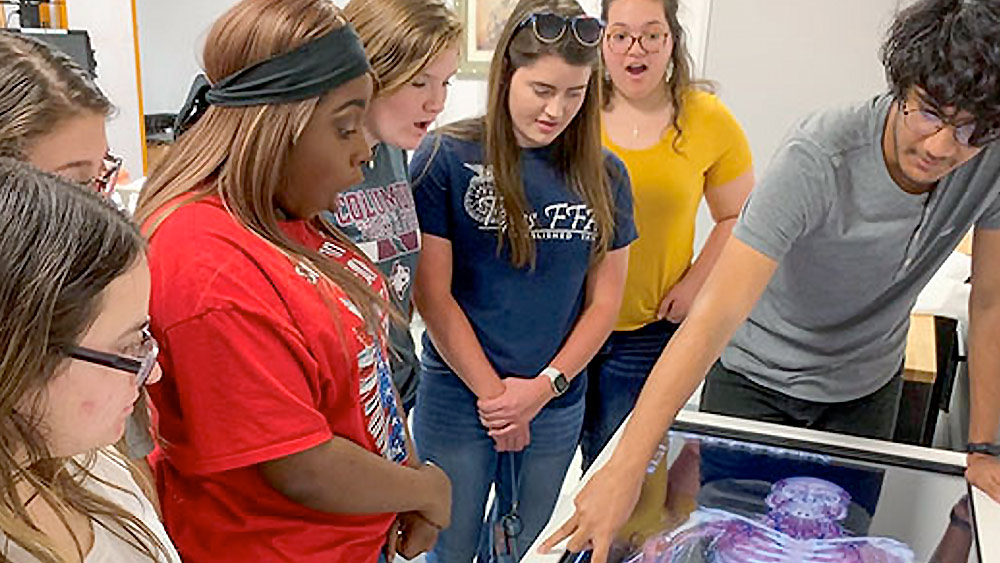

The Nuclear Power Institute is recognized for its outreach and engagement of K-12 students to develop the necessary workforce to support the continuing and emerging clean industry and nuclear science and technology needs.
Two-year degrees and certificates for the skilled labor workforce
Demand is high for a skilled labor workforce to support national labs and sites. The Texas A&M University System provides support to community colleges, offering pathways toward earning associate degrees related to nuclear power technology and related topics.
The A&M System also provides a broad spectrum of certifications to support the national security enterprise. The Texas A&M Engineering Extension Service, considered top in its class, provides training and certifications to support the nuclear industry in incident management, high explosives handling, emergency management, executive crisis management, infrastructure and safety, Occupational Safety and Health Administration-required training and continuity of operations.
Undergraduate, master’s and doctoral degrees
The majority of degrees offered within the 11 universities of The Texas A&M University System are at the bachelor’s, master’s and doctoral degree levels. The largest nuclear engineering program in the country is housed at Texas A&M University, and other A&M System schools offer programs in nuclear criticality, systems engineering and national security affairs.
Texas A&M’s online delivery and remote learning provide many opportunities to access courses of importance to the national labs. Online programs include a variety of graduate engineering and business degrees, including a master’s degree in engineering technical management and a master’s in data analytics. The A&M System makes access to education as easy as possible, and in some cases, waives out-of-state tuition for students in high-demand fields, such as national security and for employees of the national labs.
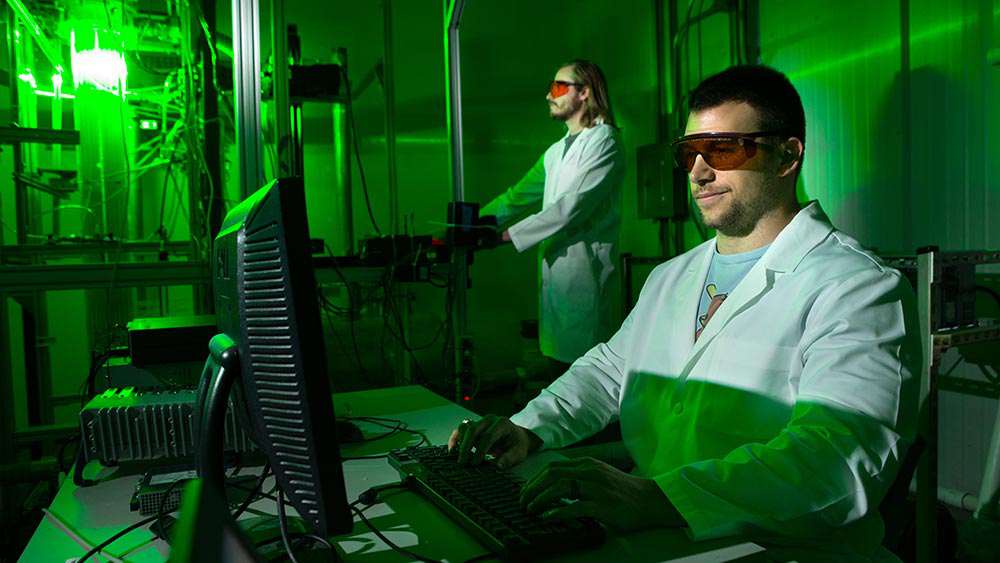
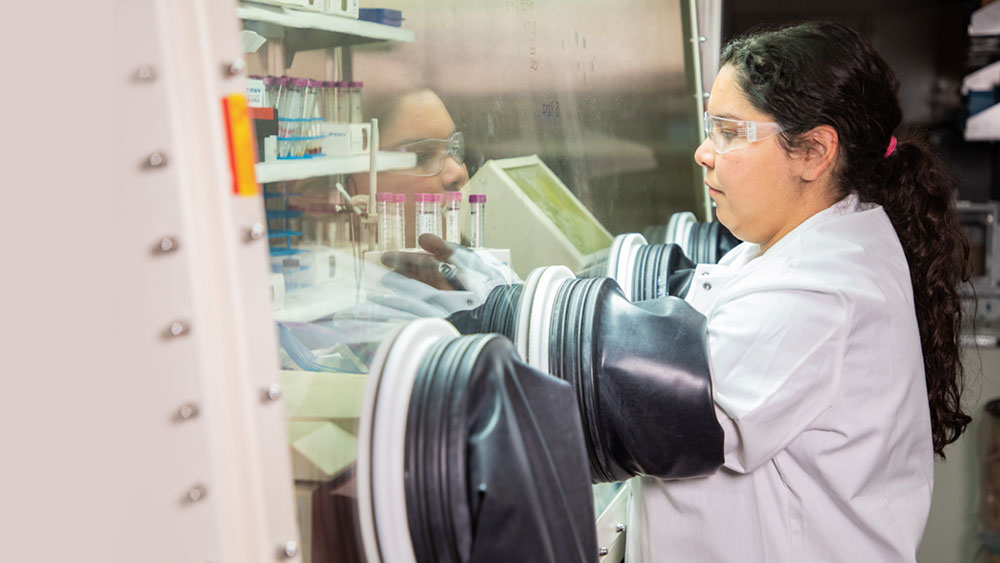
Experiential learning
Across the Texas A&M System, innovative hands-on experiences for students at all levels are offered. From short make-a-thons to capstone projects, graduates enter the workforce with a broad-based perspective and experience.
Research Experiences for Undergraduates (REU) programs are offered around the country, providing research experiences, seminars and networking with scientists. These skills provide students with a launch pad for future laboratory opportunities. Despite nationwide cancellation due to COVID-19, Texas A&M created an Online Research Experiences for Undergraduates (O-REU) program with Los Alamos National Laboratory and Sandia National Laboratories.
Student recruitment
Connecting students with the national labs is critically important for research and workforce development. The Nuclear Security Office holds student seminars associated with campus visits, supports and encourages laboratory professionals to engage with student organizations, courses, capstones and experiential learning activities, hosts informational sessions and recruiting events, and supports internships and fellowships.
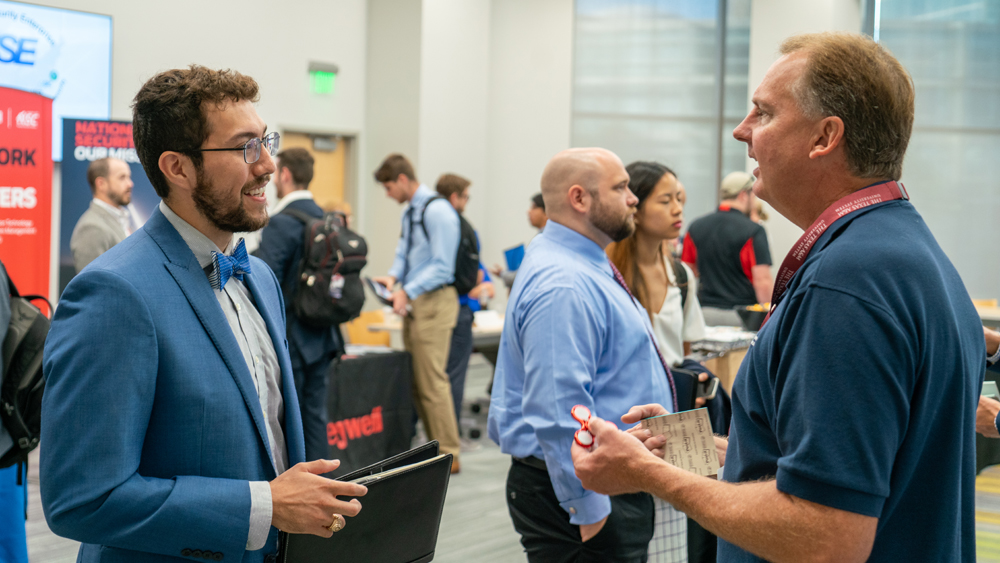
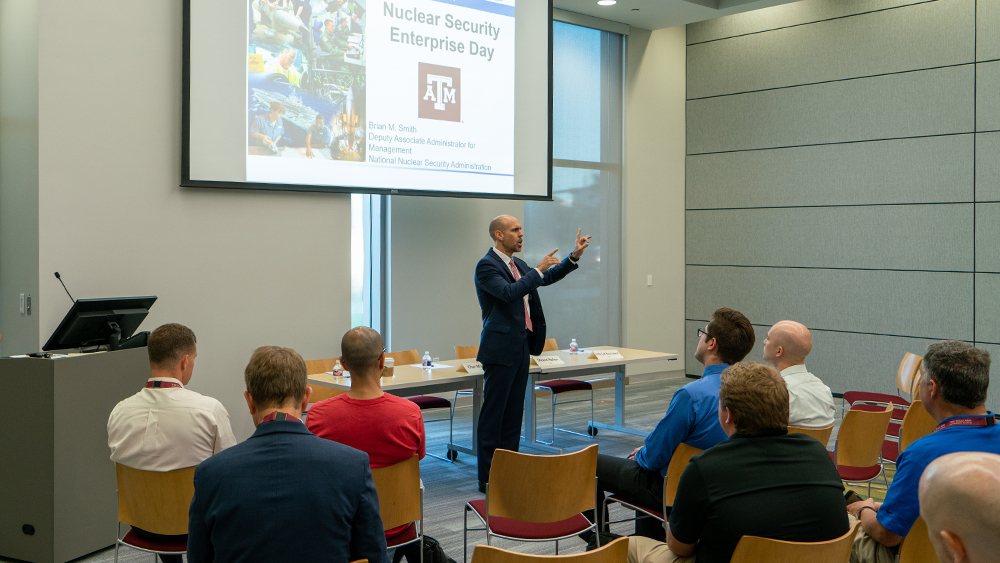
The Nuclear Security Office has conducted five Nuclear Security Enterprise (NSE) Day events, connecting the National Nuclear Security Administration (NNSA), national laboratories and others around the country managed by the NNSA that maintain the nation’s nuclear stockpile, including a virtual NSE Day during the pandemic.

Veterans
The Texas A&M System is a national leader in service to students who are veterans, active duty, military dependents and survivors, with more than 4,000 veterans and 6,600 dependents enrolled. Texas A&M University was founded in 1876 as a military academy and has a longstanding tradition with the military, serving veterans since 1919. The system supports a Veteran Services Office and veteran resource and support centers at every campus for military-affiliated students and families, such as West Texas A&M University and Prairie View A&M University.
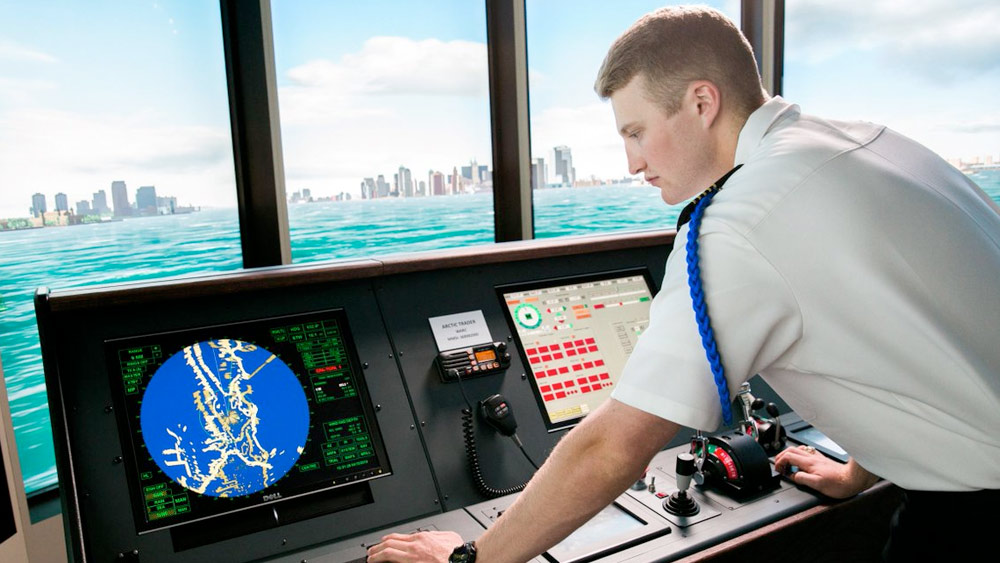
Security clearances for students
Many internships and jobs with the national labs require students to work with sensitive information that may impact national security, necessitating a thorough background investigation to grant a security clearance. The Texas A&M University System has the capability to support security clearances for our students and employees who work with the national labs.
Continuing education and training
Education is a lifelong process. It is critical that professionals stay up to date on new and emerging technologies in their respective fields. The Texas A&M University System offers many opportunities for state-of-the-art professional development and continuing education.
The system delivers many high-quality technical education programs for individual learners and organizations, using research faculty and industry experts to deliver superior knowledge and practical application scenarios to professional development and continuing education offerings. Whether face-to-face, online or via blended methods, the system offers short courses, workshops and conferences.
Virtual educational opportunities
Online Degree Programs
The Texas A&M University System offers well over 50 degree-granting programs completely online and ranks as one of the top in the nation in the number and quality of our offerings, especially in support of the Nuclear Security Enterprise.
See more information about online degree programs offered by members of the A&M System:
- Texas A&M University Distance Education programs
- West Texas A&M University online degree programs
- Tarleton State University Master of Science in Quality and Engineering Management
- Prairie View A&M University Distance Learning programs
Professional Development
With the ever changing environment of travel and research collaboration, the Texas A&M System has provided a proactive approach to interactive virtual educational series for both researchers and students. Topics have covered subjects such as:
- Soft Matter Material Science – Provided a collaboration opportunity for A&M System researchers and laboratory researchers to present ongoing research.
- U.S. Department of Energy Isotope Program Series – A joint Department of Energy Isotope Program Office series allowing student and young researchers to present various lab work and results to the scientific community.
- Joint Texas A&M University-Los Alamos National Laboratory Particle Physics Seminar Series – This seminar series focused on new and exciting developments in experimental and theoretical particle physics, from all three frontiers: cosmic, intensity and energy.
- Laboratory Research Priorities – Laboratories have been able to share their research priorities and how what the future goals may hold.
Regularly check upcoming events for faculty and students as the A&M System will continue to provide opportunities as available.
Texas A&M Engineering Extension Service (TEEX)
As a member of The Texas A&M University System, the Texas A&M Engineering Extension Service (TEEX) is unique in its ability to access a broad range of emerging research and technical expertise. Major TEEX programs include fire and rescue, infrastructure and safety, law enforcement, economic and workforce development, and homeland security. Beginning with course design and development all the way through hands-on instruction and national certification testing, TEEX delivers comprehensive training through both classroom and hands-on instruction and as online courses. Hosting services for online courses, technical assistance and technology validation are also available.
As part of the National Domestic Preparedness Consortium and home to the National Emergency Response and Recovery Training Center (NERRTC), TEEX has been leading homeland security training since 1998. It is a founding member of the National Domestic Preparedness Consortium. NERRTC provides local, state, tribal and territorial jurisdictions with high-quality, hands-on, scenario-driven leadership training, exercises and technical assistance. This training is in 11 core competency areas: cybersecurity, crisis communications, executive and elected officials’ education, hazardous materials awareness and operations, health and medical services, incident management, infrastructure protection, search and rescue, threat and risk assessment, and training gap analyses and public works.
